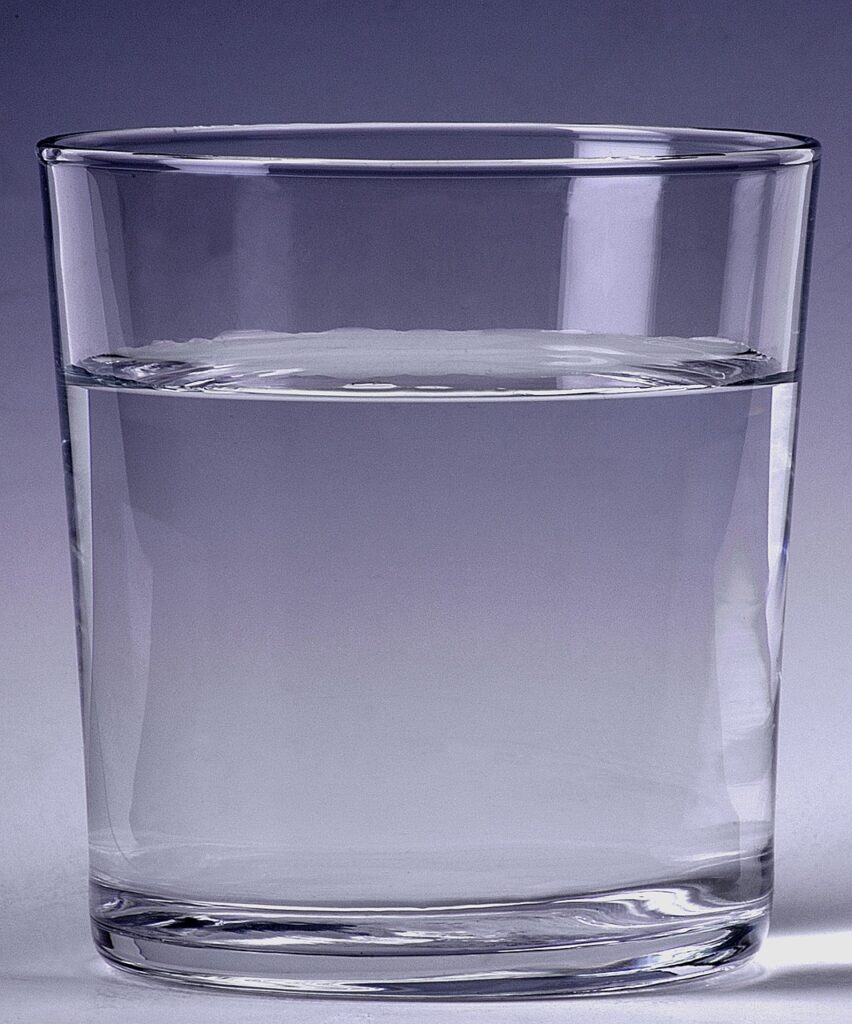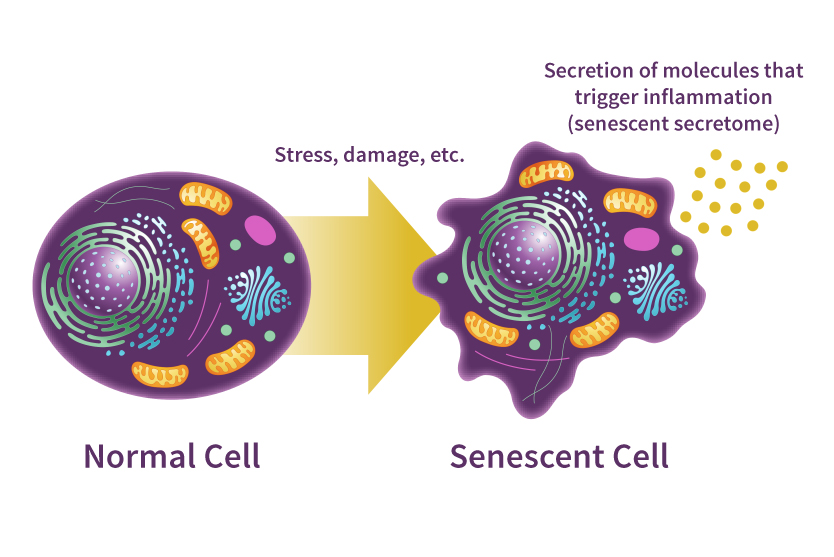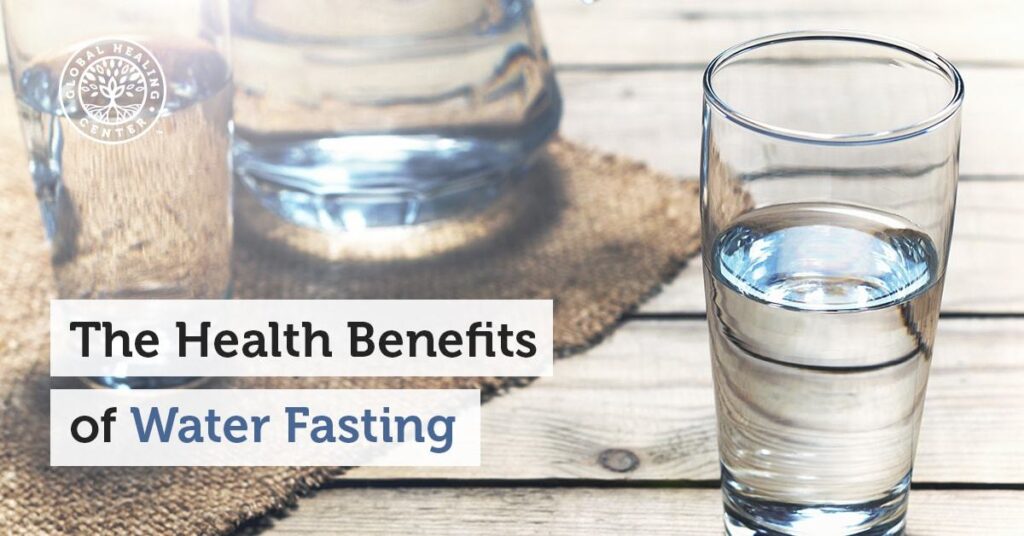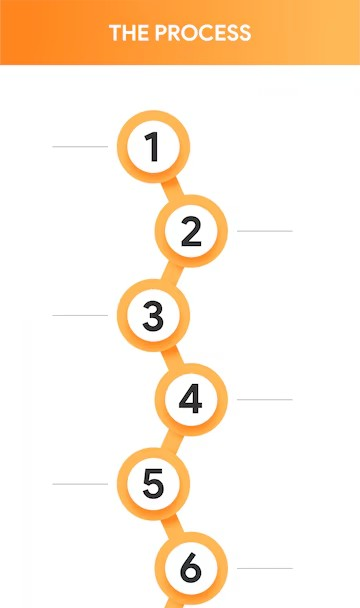
Introduction to Water fasting and Longevity
Water fasting is a type of fast where a person does not eat and drinks nothing other than water. However, there is no set time that water fasting should last for. But medical advice generally suggests anywhere from 24 hours to 3 days as the maximum time to go without food. So then, you should not follow a water fast for longer without medical supervision. Furthermore, water fasting can be beneficial for longevity as it helps prevent age related diseases in older adults. Always dicuss water fasting with your health provider before starting a water fast.
Autophagy

In Water Fasting and Longevity. Autophagy is a process in which cytoplasm and organelles are removed and recycled. Here, this process helps to keep the body in balance by self removing senescencent or zombie cells that are no longer functioning optimally or appropriately. As a result, the purpose of autophagy is to remove debris and self regulate back to optimal smooth function. Consequently it is recycling and cleaning at the same time, just like hitting a reset button to your body. Therefore, autophagy also promotes survival and adaption as a response to various stressors and toxins accumulated in our cells.
Cellular Senesence

Water Fasting and Longevity. Chronological age represents the single greatest risk factor for human disease. So then, one plausible explanation for this correlation is that mechanisms that drive ageing might also promote age-related diseases. Cellular senescence, which is a permanent state of cell cycle arrest induced by cellular stress. And has recently emerged as a fundamental ageing mechanism that also contributes to diseases of late life, including cancer, atherosclerosis and osteoarthritis. Therefore, therapeutic strategies that safely interfere with the detrimental effects of cellular senescence. Such as the selective elimination of senescent cells (SNCs) or the disruption of the SNC secretome are gaining significant attention. Also, with several programmes now nearing human clinical studies.
Water Fasting How It Works

Water fasting involves abstaining from all food and caloric beverages for an extended period of time. But, what are the stages of water fasting? Also, what should you expect for a water fasting timeline. And in term of the various water fasting stages your body will go through for longer water fasts?
In this article, we will discuss what happens to your body when you take on a water fast and provide a general overview. Subsequently showing, the water fasting timeline with the different stages of water fasting.
The Stages of 3 Day Water Fasting

Water Fasting and Longevity. Although each of us has somewhat of a unique biochemistry such that fasting can affect the exact water fasting timeline. That your body goes through, there are general stages of water fasting that we all go through. Because water fasting involves a cessation of consuming any calories, water fasting places the body into an energy deficit once you have been fasting for a certain number of hours.
Due to the fact that there is low energy availability. Because you’re not consuming calories while fasting. Here, your body undergoes various changes to your metabolic and hormonal balance during extended fasting protocols. So then, there are several reported phases of fasting that your body goes through during a prolonged water fast. As described by the general water fasting stages outlined below:
1: 12 Hours Of Water Fasting
It takes about 12 hours of fasting before any appreciable metabolic effects of fasting take hold. And this is because your body still has available calories/fuel from your previous meal before you started fasting. However, After about 12 hours of fasting, your body will start to run out of stored muscle and liver glycogen.
Glycogen is the storage form of carbohydrates and a preferred fuel source for certain cells of the body at all times. Such as the brain and red blood cells, as well as the preferred fuel source for the muscles during high-intensity exercise. Furthermore, once glycogen has been depleted, the body will shift into a state of ketosis. Ketosis involves breaking down and oxidizing fat for energy instead of carbohydrates.
Therefore, physically, you will not necessarily feel a detectable difference in how your body feels when ketosis first kicks in unless you are trying to do vigorous physical activity.
With Exercise
Therefore, with exercise, if you are not a “fat-adapted athlete,” meaning that your body is not accustomed to readily burning fat for fuel. However, at a high intensity, you may feel sluggish and tired during your workouts. In this case, this is because it takes longer for the muscles to burn fat to make ATP compared to carbohydrates. Consequently, you will also probably start feeling pretty hungry and may experience low blood sugar symptoms such as lethargy, difficulty concentrating, irritability, and food cravings.
2: 18 Hours Of Water Fasting
Although the onset of ketosis will occur during the first stage of water fasting after about 12 hours with no caloric intake, it’s not until about 18 hours that most people are truly in a state of ketosis. Here, your body primarily burns fat for fuel because glycogen stores are almost entirely depleted.
For the most part, the body stores about 80 grams of glycogen in the liver. And a very small amount of glycogen in the brain, about 4 grams of glucose in the bloodstream, and upwards of 500 grams of glycogen in the skeletal muscles. But depending on your body size, muscle mass, sex, and training status. Here, due to these many variables, they can be a fairly wide range in terms of the total number of grams of glycogen stored in the body. In particular, researchers suggest that a good ballpark average for an adult is 600 grams of glycogen.
Because each gram of glycogen can supply approximately four calories worth of energy. This research suggests that we have about 2400 calories worth of energy stored as glycogen.
This is slightly higher than the total number of calories in glycogen storage, according to the Academy of Nutrition and Dietetics, which estimates that an endurance-trained athlete can store up to 1,800 to 2,000 calories of fuel as glycogen in the muscles and liver.
Burning Body Fat
Because you are burning body fat, you will be generating much higher levels of ketones. Furthermore, the ketones serve as the main fuel source for your cells rather than glucose. In addition, physically, many of the same symptoms of fasting will persist into this water fasting stage that initially appeared during the first stage of water fasting. However, some people start to feel the benefits of burning ketones, such as improved mental clarity.
Water Weight will Drop
Additionally, you will start to notice a significant drop in water weight by the end of the second stage of water fasting. Once your glycogen has been fully depleted. Also, this weight loss is attributable to the release of stored body water rather than actual fat loss.
Because the body stores about 3 to 4 grams of water for every gram of glycogen. And once all of your glycogen has been burned off and you are not taking in more carbohydrates during a fast, your body will have released the body water.
If we go with the figure that a well-trained adult has about 600 grams of stored glycogen, and we assume that the body is storing 3 grams of water for every gram of glycogen, this means that your body might be storing around 1800 grams of water just to hold your glycogen stores.
Water Weight Loss is not Fat Loss
There are about 454 grams in a pound, so if you deplete your 600 grams of glycogen and the 1800 grams of stored water, your net weight may decrease as much as 5.25 pounds in the first few stages of water fasting.
Keep in mind that most of this is water weight, and it is extremely important to start drinking more water to prevent dehydration since your body is releasing stored water as you burn through your glycogen.
Stage 3: 24 Hours Of Water Fasting
After a full 24 hours of water fasting, the process of autophagy is said to begin.
Generally, autophagy can be thought of as the clean-up process of the cells. During autophagy, dead and damaged cells and cell fragments are removed and cleaned up around your body. As a result, viable cell components and proteins can be recycled and reassembled for new cells or to repair damaged cells. And while damaged and misfolded proteins, such as those linked to neurodegenerative diseases like Alzheimer’s, are destroyed.
For example, in this way, autophagy helps protect your body from such diseases and other sources of oxidative damage, inflammation, and premature aging. So then, At this point in the water fasting timeline, you might begin to experience the beginnings of the benefits of autophagy. Such as decreased pain associated with inflammation (less joint pain, headaches, bloating, etc.), better mental focus, and potentially more energy.
This is not to say that everyone in this one of the stages of water fasting will feel great. Many people feel really hungry, irritable, lethargic, and experience brain fog. Besides, each individual has their own unique response to hunger, energy intake, and fasting.
4: After 48 Hours of Water Fasting
With, Water Fasting and Longevity. After water fasting for 48 hours, the level of human growth hormone (HGH) in your body may have increased up to fivefold compared to normal resting levels.
This hormone can help rebuild and repair cells and tissues. Autophagy will still be taking place, and you will still be in a state of ketosis.
It will become increasingly important to hydrate enough and to take in electrolytes because your electrolytes. May start to deplete through urine and sweat and the lack of electrolytes coming in through your diet.
5: After 60 Hours of Water Fasting
Once you have been water fasting for about 60 hours, or 2 1/2 days, your insulin levels will have dropped to their lowest level, and your cells’ sensitivity to insulin will peak. Here, this is particularly beneficial for anyone with insulin resistance, metabolic syndrome, or type 2 diabetes.
6: After 72 Hours Of Water Fasting
Finally, water fasting and longevity. The last defined stage of prolonged water fasting is marked by your body beginning to destroy old immune cells and generate new, healthier immune cells. Subsequently, this typically occurs after water fasting for 72 hours or more. So it can strengthen your immune system, decrease inflammation, and boost energy and vitality.
It is important to speak with your healthcare provider before attempting a prolonged water fast. Water fasting for an extended period of time may not be safe or advisable for certain individuals.
It is also advisable to build up to extended water fasting protocols with shorter water fasts or intermediary intermittent fasting diet schedules.
Water Fasting Ians View
I like to do a 3 day fast at regular intervals throughout the year, I find this extremely useful and I also find it enjoyable. Eating and digestion use a massive amount of energy every day, just digesting sorting and distributing all the vitamines and nutrients passing through the system. However when you fast all that energy is channelled in to maintenance and repair of the body. So then this process is called Autophagy, in simple terms autophagy is a bit like a security scan of the body, that looks for and deals with damaged cells, dead cells and old cell debris. This helps to prevent illness, by removing them before they can cause a problem. Also, autophagy changes your system to burn fat for energy which aids weight loss.
10 day fasting
Once a year I fast for a prolonged period of 10 days, this is a complete digestive holiday, that is also a major reset to my internal system. Consequently, this is a major contributor to my health and longevity. And I believe it has helped me to be able to run, use a jump rope, lift weights and have great mobility, at close to 77 years of age. But, it would help if you cleared any fasting with your health provider before starting any fast. As a result, fasting needs to suit you and your doctor is the only person to tell you if it is ok for you.
DONATE
Pensioner Fitness Awards
THE BUSINESS CONCEPT, BEST IN BUSINESS AWARDS
- “MOST INSPIRING SENIOR WELLNESS WEBSITE 2023“
THE GLOBAL HEALTH AND PHARMA, FITNESS AND NUTRITION AWARDS
2. “BEST SENIOR FITNESS AND NUTRITION SPECIALIST 2023“
THE MIDDLE EAST AND AFRICA BUSINESS AWARDS
3. “ MOST INCLUSIVE FITNESS PROVIDER 2023″
THE CORPORATE LIVE WIRE GLOBAL AWARDS 2023/2024
4. ” FITNESS ADVISORY PLATFORM OF THE YEAR“ 2023/2024
In Conclusion
Autophagy triggered by water fasting is a process that keeps your body’s cells in proper balance by taking old or damaged components in a cell and recycling them. The recycled parts are turned into amino acids that can be used for fuel or to form new proteins. Also, autophagy is triggered when the body is starved of energy, such as can occur with exercise, calorie restriction, fasting, or a keto diet.
Certain chronic diseases are linked to problems with autophagy. Even so, there is no evidence that triggering autophagy with diet or exercise can prevent or treat illnesses. Exercise and diet may be of benefit to you, but not for the purpose of inducing autophagy.
Important Note *
Remember that everyone is different, it is ultimately YOUR RESPONSIBILITY to find what your body responds to. So please do your due diligence before trying anything new, including getting Medical Advice to ensure your safety and peace of mind.
Connect with me and leave a comment
10 replies on “Water Fasting and Longevity”
Are you sure this has no effect, whatever the practitioner’s age?
Hi Vishwapati Trivedi, At weeks short of 77 years of age, as I put in the blog I believe in this and do this on a regular basis, it works for me, However, as I put in the blog you must ensure your doctor is ok with you trying this, many medications and conditions may leave you unsuitable to try this, but your doctor will be able to assess you and say yes or no, good luck, all the very best Ian
Excellent post. Clear and concise
Thanks
Hi Gillian, Thank you for your kind words, I work hard at keeping myself as healthy as I can, please look forward to Muscle the key to longevity, take care, all the very best Ian
You present this complex information in a very clear way – many thanks
Hi Heather, Thank you for your kind words, I work hard at keeping myself as healthy as I can, please look forward to Muscle the key to longevity, all the very best Ian
I would have liked to have read how to break the fast after 3 days. You obviously, I would think, have to reintroduce foods a certain way. Maybe clear broth first? Hopefully you will follow up with part two
Hi Julie, When I come to the end of a fast I just eat soft food like scrambled egg, on the first morning, then slowly move onto fruit and easily digested foods, and it may supprise you I do exactly the same at the end of a 10m day fast, thank you for your comment, I really appreciate comments, all the very best Ian
Thanks Ian, for an interesting article. Something else to be considered for a lot of people including me is caffeine withdrawal if I did this as water only.
Hi David, in the article it mentions calorie free beverages, you can drink tea and coffee black, if they are sugar and milk free. Thanks for commenting, all the very best Ian